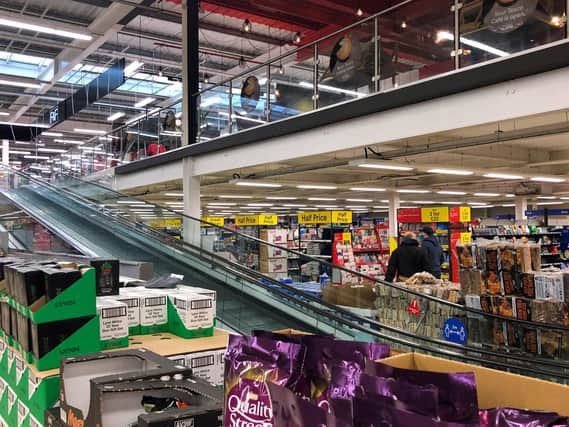Record-breaking 5.9 million people brought groceries online last month, says Kantar


The latest supermarket data from Kantar said there was “limited evidence” of stockpiling despite the two-week firebreak in Wales and the new lockdown in England.
It showed sales increased by 9.4% in the most recent four weeks, similar to the overall 9.3% rise in the quarter, which took overall grocery spend to £29.4 million.
Advertisement
Hide AdAdvertisement
Hide AdBut shoppers rushed to snap up Christmas gifts ahead of the four-week lockdown, with Kantar revealing toy and entertainment stores more than doubled their share of pre-Covid footfall between Monday to Wednesday last week.
Kantar revealed a record-breaking 5.9 million people bought groceries online last month, while internet shopping hit its highest ever level in Wales in the second week of the country’s “firebreak” lockdown, accounting for 16.2% of the market.
It added that Welsh shoppers increased their spending by an average of £10 during the week when the lockdown came into effect.
Fraser McKevitt, head of retail and consumer insight at Kantar, said: “While there was some uplift in Wales, the increased spending did not provide any evidence of stockpiling, and initial figures suggest no sign of panic buying in England either.
Advertisement
Hide AdAdvertisement
Hide Ad“But one thing is always front of mind at this time of year – Christmas – and it seems many people sought to get ahead with gift buying before stores closed.”
Ocado was again the fastest growing retailer, with sales up by 36.1%, increasing its market share to 1.7%. Waitrose meanwhile grew ahead of the market, by 10.6%, and its share rose for the first time since 2017 to 5.1%. Waitrose increased its online sales faster than any other grocer this period.
Morrisons led the big four, growing sales by 11.4%, and expanding its share for the fifth month in a row. It now accounts for 10.2% of sales, helped by its The Best premium own label brand, which grew by 42%.
Sainsbury’s sales rose by 7.6% this period and its market share currently sits at 15.3%. The retailer recently announced it would permanently close its fresh food counters, a move which reflects a market-wide drop off in the number of people using in-store butchers, delis, and fishmongers, said Kantar.
Advertisement
Hide AdAdvertisement
Hide AdAsda increased sales by 5.0% this period and it holds a market share of 14.4%. Tesco, which grew by 9.1%, maintained its share at 27.0% and had success through both physical and online sales, according to Kantar.
Lidl’s growth accelerated to 12.5%, with market share up to 6.1%, while Aldi’s sales rose by 6.6%, and its share fell slightly to 7.8%. Co-op increased sales by 8.6%, but its market share dipped to 6.4%, while independent retailers accounted for 1.9% of the market, as sales grew by 15.6%.